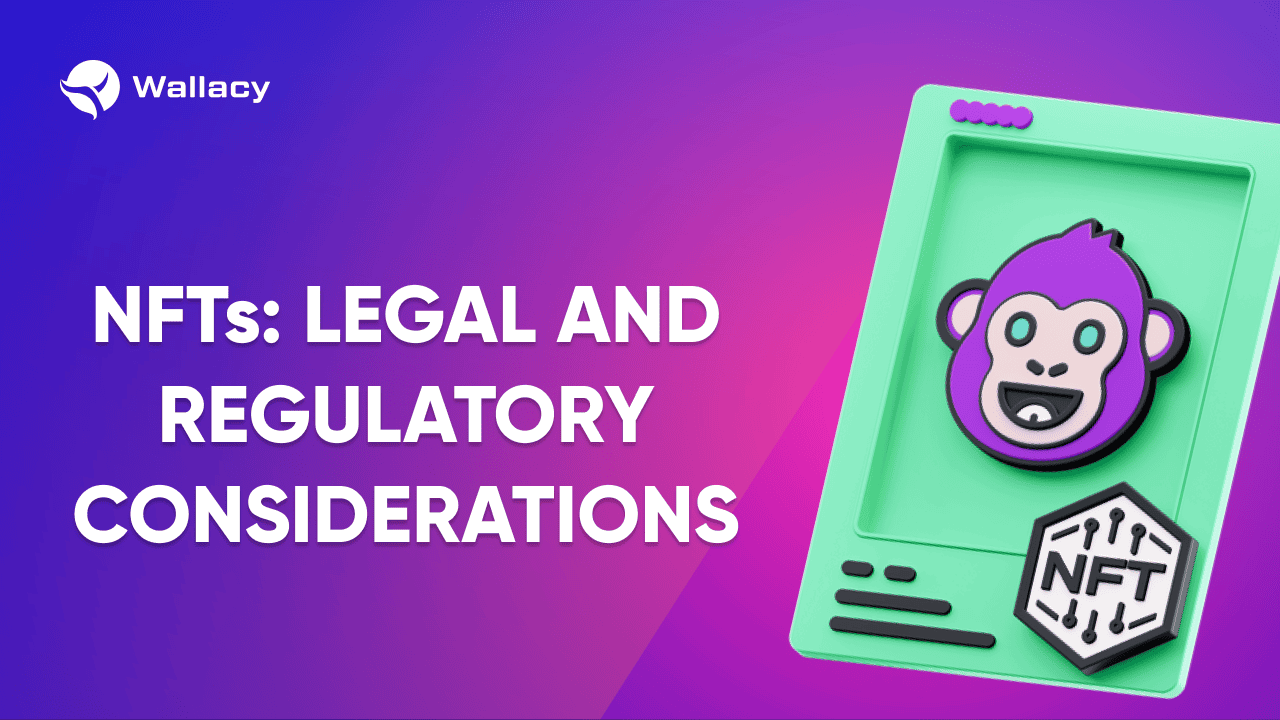Crypto Wikipedia
Search our knowledge base or browse categories below.
Legal and regulatory considerations

As with any emerging technology, NFTs (non-fungible tokens) are subject to a variety of legal and regulatory considerations, including:
- Intellectual property: NFTs that represent digital art, music, or other creative works may be subject to intellectual property laws, such as copyright or trademark. Creators and buyers of NFTs should ensure that they have the necessary rights and permissions to use and sell the underlying works.
- Taxation: NFTs may be subject to taxation, depending on the jurisdiction and the specific use case. For example, selling NFTs may be subject to capital gains tax, and creators may be subject to income tax on any profits earned from the sale of NFTs.
- Consumer protection: NFT buyers may have consumer protection rights, such as the right to refunds, warranties, or guarantees of authenticity. Regulators may also have the authority to intervene if NFTs are used in fraudulent or deceptive schemes.
- Anti-money laundering (AML) and Know Your Customer (KYC): NFT platforms and exchanges may be subject to AML and KYC regulations, which require them to verify the identity of their users and monitor transactions for suspicious activity.
- Securities laws: NFTs that are marketed or sold as investment opportunities may be subject to securities laws, such as the US Securities Act of 1933 or the EU’s Markets in Financial Instruments Directive (MiFID II). In these cases, the issuer of the NFT may need to register with the relevant securities regulator or comply with other legal requirements.
- Environmental impact: The high energy consumption associated with blockchain technology, including NFTs, has led to concerns about the environmental impact of these activities. Regulators and policymakers may consider implementing measures to address these concerns, such as carbon pricing or emissions regulations.
Overall, NFT creators, buyers, and platforms should be aware of the legal and regulatory considerations associated with these assets, and should seek legal and regulatory advice as necessary to ensure compliance with applicable laws and regulations.